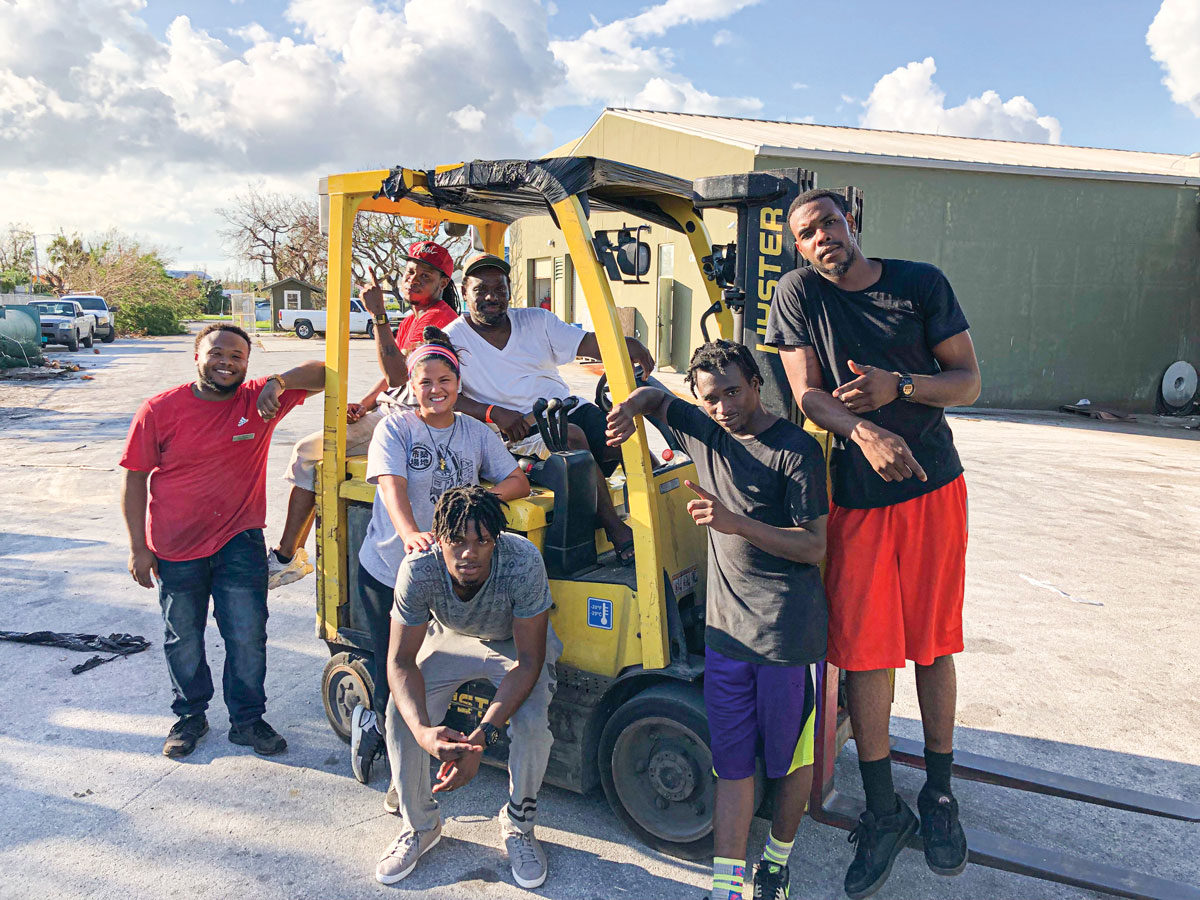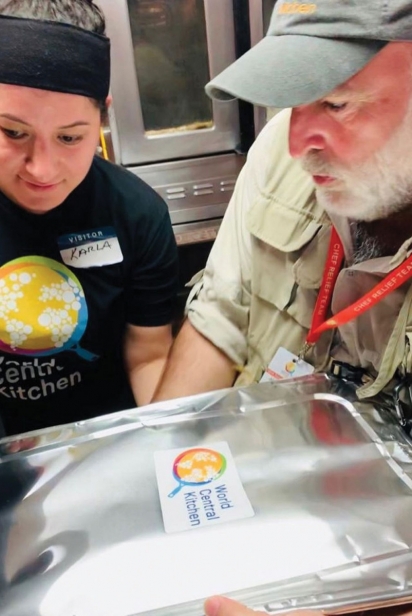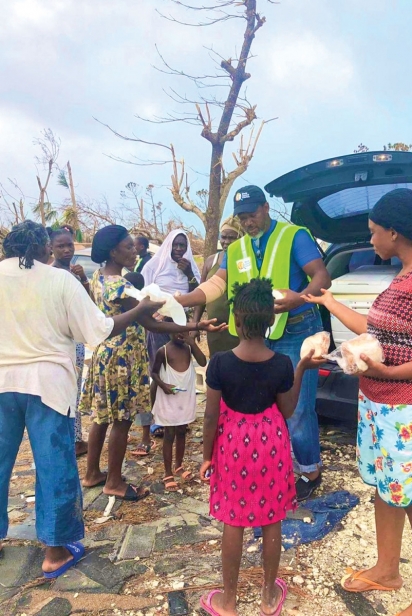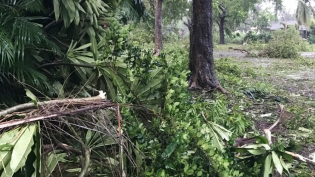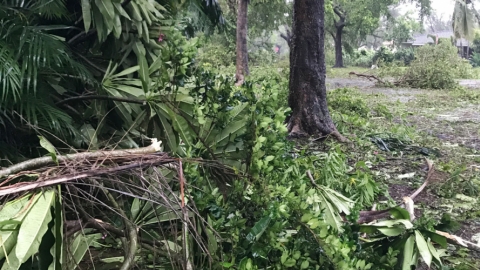A Degree of Longitude
Words cannot express my sorrow and frustration that Dorian, a most evil of tempests, set its sights on and laid waste to the northern islands of the Bahamas. The Abacos and Grand Bahama paid the ultimate price, their people killed and rendered homeless, lives forever altered. The constructs of man that Dorian did not smash and shatter sank beneath the rising seas or were washed away along with the ground beneath them. The storm left behind many trying to make sense of the obliteration and splintered landscape. Survivors will now define their lives as before and after Dorian, and the northern Bahamas are altered for generations to come.
South Florida was spared the indescribable fury of this storm. A mere degree or two of East latitude was our salvation, and for that I am thankful. I lived through the direct landfall of Hurricane Andrew on Homestead in 1992. That night, decades ago, was fresh in my mind this Labor Day 2019. I cannot stomach the disaster-mongering that is the hallmark of modern hurricane reporting, so instead I monitored the satellites and read NOAA’s internal reports. The dread I felt was for the people of the Bahamas.
Inside a Cat 5 Storm
Closed up in our closet in 1992, I heard, saw and felt things I cannot describe. It is hell on earth within the northeastern eyewall of a category 5 hurricane. The walls and air pulses as if a locomotive is passing through you. You don’t hear. You only feel. Your voice is crushed by the weight of the air. These were the longest hours of my life. I do not want to imagine what my friends in the Bahamas endured for days on end.
It was 27 years ago when my edible landscape was violently reduced to rubble from Sunday to Monday morning. Physically I was fine, but remained broken even after the winds subsided. Recovery began one square foot at a time in an ordered space among the branches, trunks, roofs, windows, freezers, plane parts and unidentified rubble. It was a handful of pigeon peas planted 8 inches apart in a tidy square. I would begin the day here and move out inch by inch, foot by foot, area by area, regaining order. For the hurricane survivor, only order, rows and natural organic growth and architecture can overcome chaos, the ultimate enemy.
Now is the time to save, restore life, make order from chaos. Hurricanes of Dorian’s magnitude can forever change the edible landscapes that make up the fabric of our lives. As humans, we need this connection to the earth.
Island Produce
The northern Bahamas shared our edible landscape prior to the storm. The long-necked avocados of the Abacos and Grand Bahama were beloved throughout the islands, the hog plums were among the sweetest and the Grand Bahama dilly (sapodilla) was truly special. The edible resources of islands are fragile indeed, and one cannot recover them with canned goods from the mainland.
It is a long and arduous path. After Andrew, I was able to save much of my landscape by the sweat of my brow. An effort of triage, consisting of pruning, resetting and care, resulted in miraculous survival and rebirth. We had wind, but no storm surge. The surge is death – human, plant and animal. The fragile freshwater lens of these islands will be compromised. It will be our duty to help rebuild the edible landscapes of the Bahamas.
A Time for Restoration
Since the passing of Dorian I have been filled with only sadness for the loss of life and order and the healing that comes from rebuilding and replanting. The edible landscape feeds our bodies and our souls. Is there anything that can contribute to health and wellness like the American persimmon plucked from the ground beneath the tree? It’s not the same to buy and consume the sweet potato from the corner store, as opposed to the digging, curing and roasting heirloom batatas (sweet potatoes) grown in your own backyard? Not until we achieve the maturity of the edible landscape can we truly recover and truly heal our splintered soul.
Prune your landscapes to prepare for the storm that will most assuredly strike. Tend to your gardens and your souls so that you provide for the needs of others. Open your hearts and your resources to our friends. The edible community is strong in South Florida and it is from this strength that a new future will take root and bear a bountiful harvest in the Bahamas.
On the Ground in the Bahamas
Shortly after Hurricane Dorian tore through the Bahamas, José Andrés and his World Central Kitchen team were at work to deliver meals to those in need. Local chefs Karla Hoyos of Bazaar (pictured above) and Val Chang (photo, left) of Itamae and B-Side at 1-800-Lucky made the trip. While Hoyos has worked at relief efforts before, it was a first for Chang, who spent six days in the Bahamas. “We went on a boat to Freeport and made 500 sandwiches on the way,” she says.
After delivering the sandwiches, the team set out to make paella. Cooking under challenging conditions posed different problems. “We had a problem with bees,” says Chang. “There were no flowers after the hurricane, so the bees were everywhere when we were cooking teriyaki or had bananas.” The chefs were helped by local volunteers, residents whose houses escaped damage. She returned to Miami exhausted, with a newfound respect for FEMA workers and first responders. Another insight? All people need immediately is water. “Even canned food doesn’t help right away because they don’t have can openers or bowls.”
GIVE: Donate to the World Central Kitchen.


